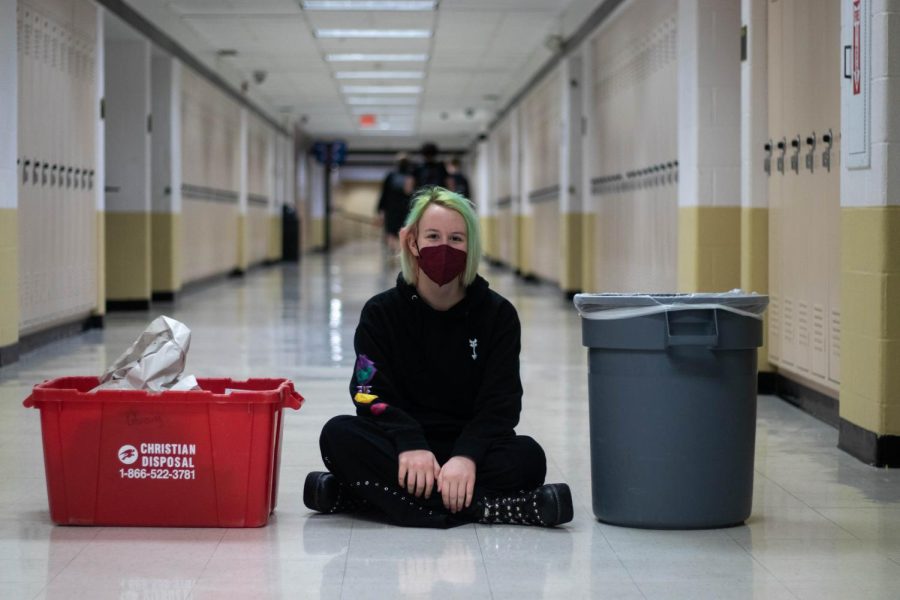Teachers are Working to Educate Students on the Importance of Bettering our Climate
Credit to Sadie Cotton
A core class in school, the sciences are an imperative piece of education that students often overlook, especially when it comes to environmental sciences. Many see this and other similar classes as lesser than its counterparts like chemistry or physics. But like those classes, environmental classes can be important to better understand our changing environment. These classes will teach students ways they can help protect our environment and how they are leaving their mark on our ever-changing world.
At North, environmental science and biology are two classes that teach students about our environment. Environmental science focuses on ways that humans affect the environment and ways to help prevent the pollution of our earth. Biology focuses on the study of life and touches on the subject of our environment. Larry Scheller has been teaching biology at North for 17 years and finds the subject of environmental science to be important in his curriculum for decision making.
“I do think that learning about the environment is important because it’s something that [students] can see and will experience in their lives,” Scheller said. “They’re gonna need to know it to make important decisions as a society in the future. I think a lot of times people go into voting not actually having the knowledge they need in order to make a proper decision. So I think it’s important that they know what they’re talking about.”
Being knowledgeable about the issues surrounding our environment is important in making more informed decisions. As students moving through high school reach the voting age, information learned from environmental science classes will become critical in making educated decisions that are environmentally friendly.
As for students not yet able to vote, being knowledgeable about the problems facing our environment is important to being more environmentally conscious in the future. Sean Ireland is a junior taking environmental science taught by Joe Brocksmith. Through the class, Ireland has learned several ways in which he helps to better protect the environment.
“Personally, what I try to do is pick up things on the side of the road that I see,” Ireland said. “And I try to recycle things, If it’s a plastic bottle, for example, I’ll put it into recycling instead of just throwing it into the trash.”
Not only are students concerned with the environment, teachers around the building are passionate about helping to protect the environment. Before the COVID-19 pandemic, Yvonne Kehoe, a special education English teacher at North, was head of the recycle club; an after school program which helped promote recycling around North.
“We picked up recycling, which were blue bags, so each teacher that wanted to participate, we gave them some blue bags, and that was through the city of St. Peters,” Kehoe said. “And about once a week, we went around after school recycling all that to ensure that it got into the proper recycling bin.”
Unfortunately, due to COVID, the club was shut down and has not made a return to North. Despite this, Kehoe and other students around the school remain passionate in protecting our environment. Through clubs like the Sun Club or Ecology club, the legacy of the recycle club carries on. And without classes like environmental science, students may not be able to learn about the damage being done to our environment.
“I think that [students] need to be aware that they, their children, their grandchildren, all need to share this one Earth,” Kehoe said. “I hope that they see value in saving the Earth and that they will pass it on to their family members and friends.”
Your donation will support the student journalists of Francis Howell North High School. Your contribution will allow us to purchase equipment and cover our annual website hosting costs.





